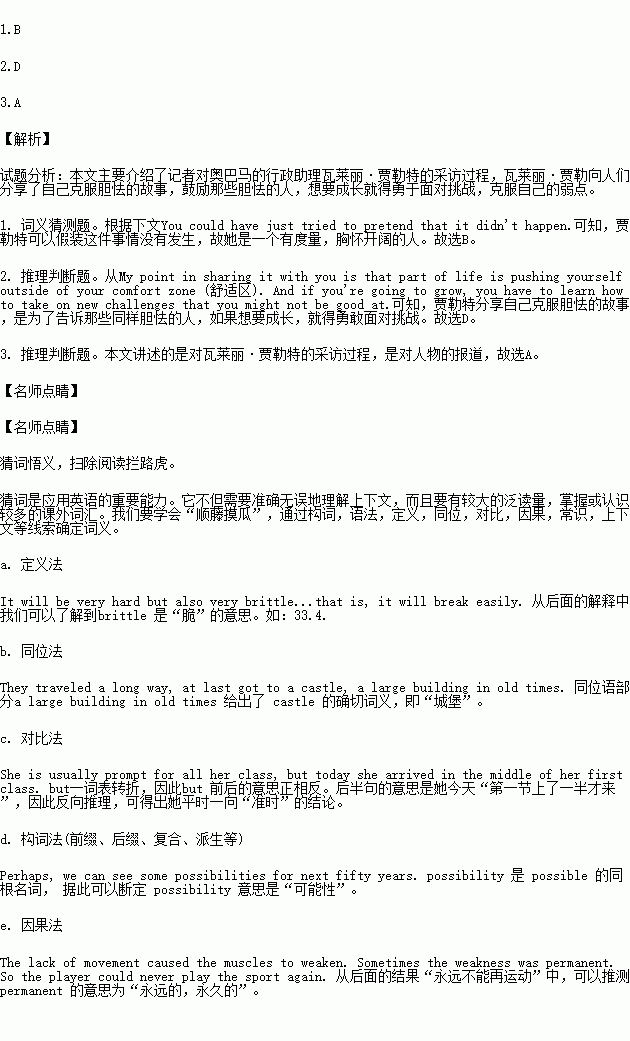题目内容
Valerie Jarrett, 58, is serving as a top adviser to President Obama and has been close to the first family since the early 1990s. Joe Heim from WashingtonPost had an interview with her.
Joe Heim: What do you think of a reporter who interviews you for 25 minutes, then later finds out his recorder stopped working and asks you to do the interview again?
Valerie Jarrett: That he's human. You could have just tried to pretend that it didn't happen.
Joe Heim: You're considered the president's closest adviser. Have you ever given him bad advice since he became president?
Valerie Jarrett: I'm sure that I have. I think one of the reasons why the president's management style is very effective is because all of his advisers feel very comfortable being open about their advice. Finally, there's only one decision-maker. And that's the president.
Joe Heim: What misunderstandings are there of you?
Valerie Jarrett: A little-known fact is that I started my life very shy and remained very shy well into adulthood. Painfully shy, I would call it. And I often share this, particularly with young people, because it's something I really had to work hard to overcome. And for all the shy people out there I say, you, too, can overcome it. But it took a lot of hard work on my part, and I discovered along the way that just because you're nervous and you have butterflies in your stomach doesn't mean that it has to show. My point in sharing it with you is that part of life is pushing yourself outside of your comfort zone (舒适区). And if you're going to grow, you have to learn how to take on new challenges that you might not be good at.
Joe Heim: Will you stay until the end of his term?
Valerie Jarrett: I serve at the pleasure of the president. If he wants me to stay, I will.
1.From the underlined words “That he's human”, we can learn Valerie Jarrett is _____.
A. warm-hearted B. broad-minded
C. well-educated D. strong-willed
2.Why does Valerie Jarrett share her shyness?
A. To show her hard way to success.
B. To prove shy people can also be great.
C. To show it is easy to overcome shyness.
D. To ask people to face challenges bravely.
3.In which part of a newspaper could we find this text?
A. People. B. Society. C. World. D. Culture.

